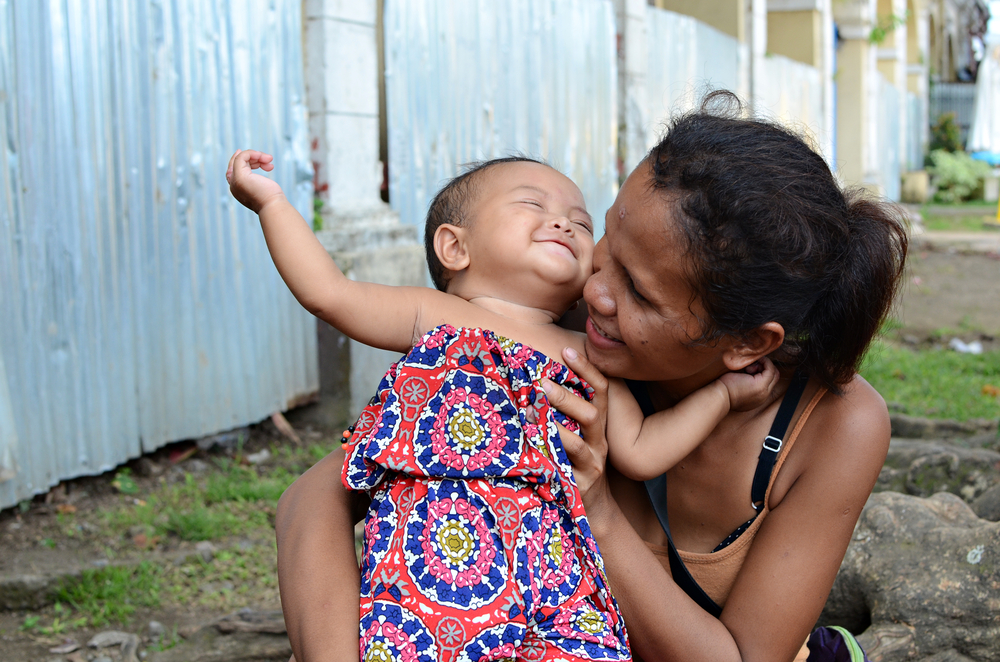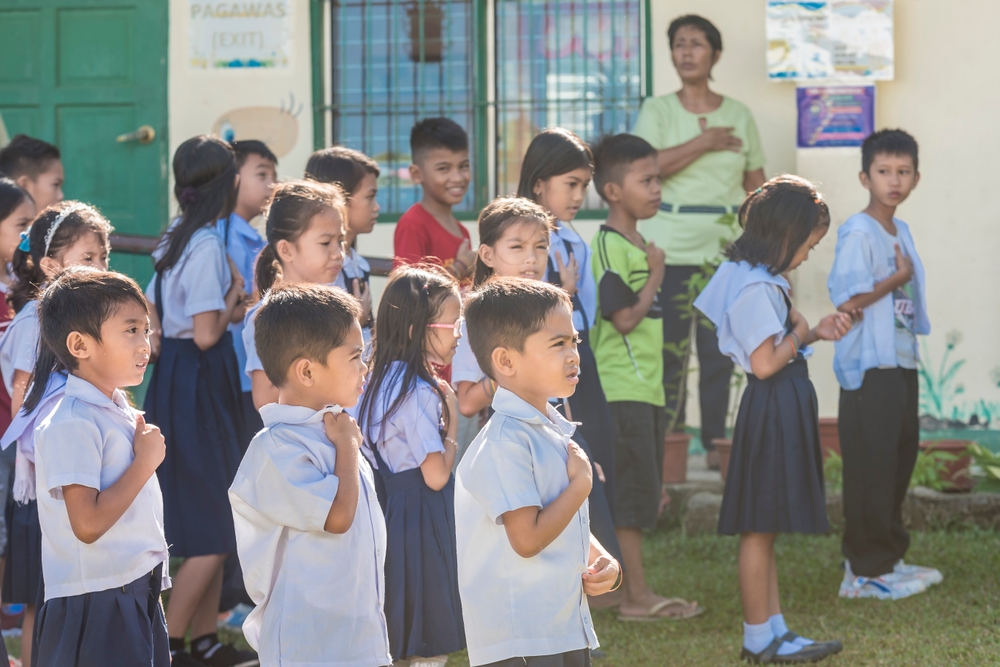Life Stages: Childhood
Early Years
Philippine culture regards all children as valuable gifts from God and sees childhood as a sensitive phase of life when children learn to laugh, cry, observe, think, and express themselves. Parents look after their children’s health and education, initiate them into religion, and protect them from harm.
Childcare is the primary responsibility of the family in Philippine culture. If parents cannot be directly involved in their children’s upbringing (e.g., when both parents are away at work), young ones go to their grandparents, older brothers and sisters, aunts, and sometimes close neighbors for care. Working parents in the middle and upper classes often hire domestic to help raise their children. Caretakers teach children about socializing, body language, disciplinary behavior, habits of cheerful obedience to elders (including parents and older siblings), trust in God, and maintaining good relationships with all.
Philippine children are usually not expected to have any real responsibilities during their early years. Normal childhood activities include playing outdoor games with siblings or friends, going to school, learning about one’s culture, ethnicity, and traditional values, developing interpersonal relationships, and adapting to approaching adulthood along with a sense of family responsibility. Philippine children are also involved in many family and social activities.
Ear piercing is not a religious or puberty ritual, but it is considered essential for all girls in the Philippines. A medicine woman, hairstylist, or medical practitioner usually pierces a girl’s ears during her infancy, between one month and three years of age.
Children in the Philippines are highly revered and receive constant care and support from all their older family members, relatives, and friends. Even the slightest wailing of a child, for instance, is immediately attended to and every possible thing is done to cheer up the child. Filipinos generally prefer having children of both sexes and treat all children as equals. In fact, many Filipino families prefer daughters because they are able to take better care of aged parents than sons.
School and Work
Filipinos spend a lot of money and do extra work to provide a high level of education to their children. They consider school to be the best place for their children to learn social skills and build a strong foundation for a good job in the future. The government provides free and compulsory schooling for all children between ages 7 and 13, and education is free up to secondary school or the age of 19.
Philippine children are usually enrolled in preschools or nurseries at the age of 4 or 5, go to elementary school, pursue secondary education in high schools up to the age of 17 or 18, and go on to college. Statistics also reveal that the average literacy rate for men and women in the Philippines is a high 98 percent.
Children in the Philippines must give paramount importance to their education and are generally not expected to contribute to the household income. The government restricts the employment of children below the age of 15 and is taking steps to eliminate child labor. However, some girls and boys as young as 5 or 6 years old, especially from poor families, rural areas, or the streets, start working to contribute to their family’s income or to support their own financial needs (for survival or to continue schooling).
Copyright © 1993—2025 World Trade Press. All rights reserved.

 Philippines
Philippines 
